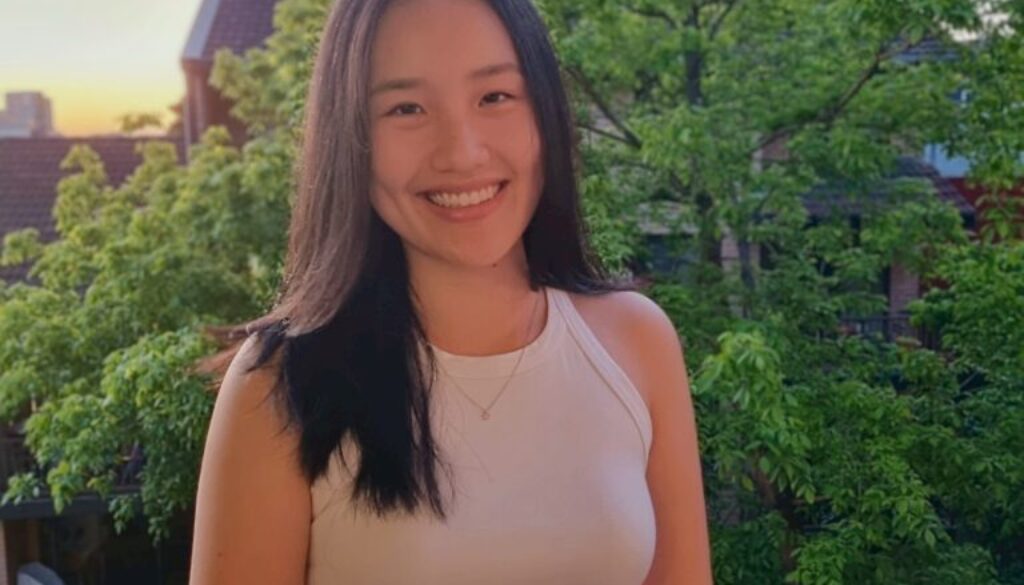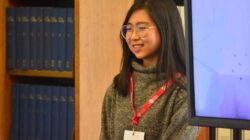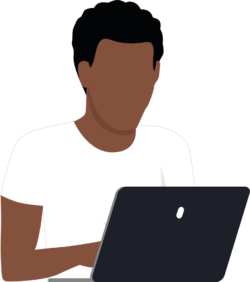Q&A with Anneliese Ng – Runner up of 2019’s Student Voice Prize
With just under two weeks until this year’s Student Voice Prize (SVP) closes, we’re making sure you guys are reminded about this fantastic opportunity and why you should get involved with this brilliant prize.
In 2019, Anneliese Ng was one of the runner’s up with her essay ‘No Country for Healthcare Equity’. We asked her why she entered and what advice she would give to anyone thinking of entering for this year’s prize.
Hi Anneliese! Could you give me a bit of background into who you are and what you currently do?
I’m a second-year medical student at the University of Sydney. Prior to med school, I did my undergraduate degree in Politics and Medical Science as well as a Master of Teaching at the University of Western Australia.
What was the reason you were interested in applying for the Student Voice Prize?
In 2019, I was part of an internship program with the Western Australian Parliament looking at research funding for rare diseases. My main project was creating a synthesis report of current RD research funding and areas of strengths and weaknesses for Rare Disease research in Western Australia.
Undertaking this project led me to become invested in Rare Disease research as there is such a substantial unmet need for funding and awareness. So, when I came across the Student Voice Prize, I saw it as another learning opportunity to further develop my understanding of Rare Diseases and improve ongoing care for people with Rare Diseases.
Can you explain what your essay was about and why you decided to focus on answering this particular question?
I wrote an essay that explored inequities in healthcare provision between First Nations and non-Indigenous Australians. I focused mainly on how this influences the diagnosis and care for First Nations Australians with rare diseases.
I decided to respond to this question as there is a significant disparity in the health status of Australia’s First Nations people in comparison to non-Indigenous Australians. In particular, First Nations people living with rare diseases highlight the influence of intersectionality on healthcare inequity.
This topic continues to be a great injustice in Australia’s healthcare system and we see that the social determinants of health play a critical role in this ongoing inequity.
What did the Student Voice Prize help you to achieve? What do you feel was the most valuable thing you learnt through applying for the competition?
I feel that participating in the Student Voice Prize and rare disease advocacy has encouraged me to think more holistically about healthcare and the ways in which our society functions. Through the research I have done, the need for systemic healthcare changes have become more apparent and grown my interest in the area.
The most valuable thing I’ve learnt from applying for the competition would be the ability to “think rare”, ask questions, and be curious. I think that regardless of what field of medicine I may end up in, an awareness of rare disease is important to be able to pick up on atypical cues and have a broader perspective of healthcare.
Even though you didn’t win after entering in 2019, you were a very worthy runner up – how did it make you feel to be chosen?
I was very thankful and honoured. I’m sure that there were many amazing essays that were entered and I was humbled that my essay was recognised. When I entered the competition, I never expected to win or be runner up, I just enjoyed the challenge of learning something new and encouraging conversations on how to drive positive change for people living with rare diseases.
Is there anything that you would have done differently when entering?
When I came across the SVP, I’d already missed the deadline for the patient-pairing scheme so if I could go back in time, I would definitely have applied for that. While I liaised with academics who worked in Indigenous and Rural Health to gain an insight into the topic, being able to speak with a patient with a lived experience would have been really valuable.
What is one piece of advice that you would give to someone who is thinking about entering the student voice prize?
Use your unique and powerful perspective as a student to amplify the voices of the rare disease community. The SVP is a fantastic opportunity to bring fresh insights and inspire change in a workforce that we’ll eventually be a part of.
What does the future hold for you and what have you achieved since entering the Student Voice Prize?
I’m not set on any particular medical specialty at the moment but I’m looking forward to the challenge of lifelong learning and I hope to embrace humility and empathy throughout my career. Since entering the SVP, I’ve had the privilege of participating in more rare disease advocacy and research opportunities.
You can read Anneliese’s Blog ‘No Country for Healthcare Equity’ here.
The Student Voice Prize closes on November 15th. To view the winners and runners up for each year so far, along with the questions and prize for this year, head here.



